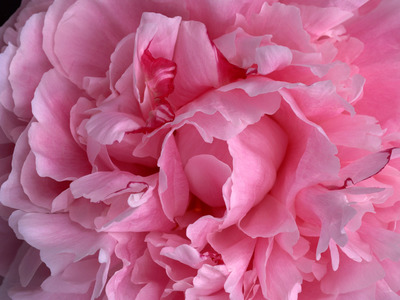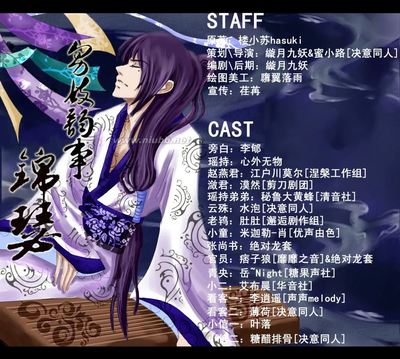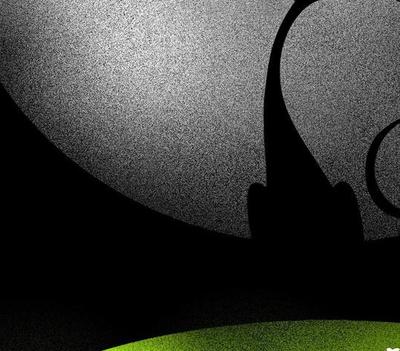繁花似锦
Glory in the flower
-----(英)华兹华斯
WilliamWordsworth
尽管光芒闪亮却短暂
What though the radiance which was once sobright
从我视线中永远消逝
Be now for ever taken from my sight
尽管一切无法重来
Though nothing can bring back the hour
草原中芳草犹绿
Of splendour in the grass
繁花似锦的时刻
of glory in the flower
我们无需悲伤感怀
We will grieve not, rather find
就在残留中找寻力量
Strength in what remains behind
--------------------------------------------------------------------------
劳伦斯布洛克的书和犯罪心理都有引用,难道这首诗看起来就像跟犯罪关联?
引用自另一个博客htt p://cheer519.blogbus.com/logs/21991731.html
What though the radiance which was once so bright曾是如此般闪耀着生命的辉煌,
Be now for ever taken from mysight,现却永恒地消失在视线的尽头,
Though nothing can bring back the hour 纵使那逝去的时光不可能复返,
Of splendour in the grass, of gloryin the flower;记忆里的绿草青青,繁花似锦,
We will grieve not, rather find我们不再悲伤,而是重新寻回,
Strength in what remains behind;在记忆中如此坚强的勇气力量。
在犯罪心理第三季19集引用了华兹华斯的这首-忆幼年而悟永生,Reed佯装不知地问起受害女孩的父亲,作为女孩遗物的手表背面的Gloryin the flower有何指,父亲于是忆起女儿生前最爱的这首诗,直背到Though nothing can bringback时,父亲哽咽了,对REED道了一声谢谢。
华兹华斯的这首诗,其实是电影电视剧里的常客,早有1961年的天涯何处无芳草,后有大河恋里父子合颂得那一幕,英国人诵读起它就像中国人吟起“天长地久有时尽,此恨绵绵无绝期”。只可惜我并不是多么爱恋诗歌的人,从前的文学课上对它也只是蜻蜓点水而过,直到在此时此景再看见它,才感叹于诗人对生与死的领悟,Findstrengthin what remains behind,就把这首诗送给所有逝去的和活着的人吧
There was a time when meadow, grove, and stream,
The earth, and every common sight
To me did seem
Apparelled in celestial light,
The glory and the freshness of a dream.
It is not now as it hath been of yore -
Turn wheresoe'er I may,
By night or day,
The things which I have seen I now can see no more.
The rainbow comes and goes,
And lovely is the rose;
The moon doth with delight
Look round her when the heavens are bare;
Waters on a starry night
Are beautiful and fair;
The sunshine is a glorious birth;
But yet I know, where'er I go,
That there hath past away a gloryfrom theearth.
Now, while the birds thus sing a joyous song,
And while the young lambs bound
As to the tabor's sound,
To me alone there came a thought of grief:
A timely utterance gave that thought relief,
And I again am strong.
The cataracts blow their trumpets from the steep;
No more shall grief of mine the season wrong;
I hear the echoes through the mountains throng,
The winds come to me from the fields of sleep,
And all the earth is gay;
Land and sea
Give themselves up to jollity,
And with the heart of May
Doth every beast keep holiday -
Thou child of joy
Shout round me, let me hear thy shouts, thou happyshepherd-boy!
Ye blessed creatures, I have heard the call
Ye to each other make; I see
The heavens laugh with you in your jubilee;
My heart is at your festival,
My head hath its coronal,
The fullness of your bliss, I feel -I feel it all.
O evil day! if I were sullen
While Earth herselfis adorning
This sweet May-morning;
And the children are culling
On every side
In a thousand valleys far and wide
Fresh flowers; while the sun shines warm,
And the Babe leaps up on his Mother's arm: -
I hear, I hear, with joy I hear!
- But there's a tree, of many, one,
A single field which I have looked upon,
Both of them speak of something that is gone:
The pansy at my feet
Doth the same tale repeat:
Whither is fled the visionary gleam?
Where is it now, the gloryand the dream?
Our birth is but a sleep and a forgetting:
The Soul that rises with us, our life's Star,
Hath had elsewhere its setting
And cometh from afar;
Not in entire forgetfulness,
And not in utter nakedness,
But trailing clouds of glorydo we come
From God, who is our home:
Heaven lies about us in our infancy!
Shades of the prison-house begin to close
Upon the growing Boy,
But he beholds the light, and whence it flows,
He sees it in his joy;
The Youth, who daily farther from the east
Must travel, still is Nature's priest,
And by the vision splendid
Is on his way attended;
At length the Man perceives it die away,
And fade into the light of common day.
Earth fills her lap with pleasures of her own;
Yearnings she hath in her own natural kind,
And, even with something of a mother's mind
And no unworthy aim,
The homely nurse doth all she can
To make her foster-child, her inmate, Man,
Forget the glories he hath known,
And that imperial palace whence he came.
Behold the Child among his new-born blisses,
A six years' darling of a pigmy size!
See, where 'mid work of his own hand he lies,
Fretted by sallies of his mother's kisses,
With light upon him from his father's eyes!
See, at his feet, some little plan or chart,
Some fragment from his dream of human life,
Shaped by himself with newly-learned art;
A wedding or a festival,
A mourning or a funeral;
And this hath now his heart,
And unto this he frames his song:
Then will he fit his tongue
To dialogues of business, love, or strife;
But it will not be long
Ere this be thrown aside,
And with new joy and pride
The little actor cons another part;
Filling from time to time his `humorous stage'
With all the Persons, down to palsied Age,
That life brings with her in her equipage;
As if his whole vocation
Were endless imitation.
Thou, whose exterior semblance doth belie
Thy soul's immensity;
Thou best philosopher, who yet dost keep
Thy heritage, thou eye among the blind,
That, deaf and silent, read'st the eternal deep,
Haunted for ever by the eternal Mind, -
Mighty Prophet! Seer blest!
On whom those truths do rest
Which we are toiling all our lives to find,
In darkness lost, the darkness of the grave;
Thou, over whom thy Immortality
Broods likea day, a master o'er a slave,
A Presence which is not to be put by;
Thou little child, yet glorious in the might
Of heaven-born freedom on thy being's height,
Why with such earnest pains dost thou provoke
The years to bring the inevitable yoke,
Thus blindly with thy blessedness at strife?
Full soon thy soul shall have her earthly freight,
And custom lies upon thee with a weight
Heavy as frost, and deep almost as life!
O joy! that in our embers
Is something that doth live,
That Nature yet remembers
What was so fugitive!
The thought of our past years in me doth breed
Perpetual benediction: not indeed
For that which is most worthy to be blest,
Delight and liberty, the simple creed
Of childhood, whether busy or at rest,
With new-fledged hope still fluttering in his breast: -
Not for these I raise
The song of thanks and praise;
But for those obstinate questionings
Of sense and outward things,
Fallings from us, vanishings,
Blank misgivings of a creature
Moving about in worlds not realized,
High instincts, before which our mortal nature
Did tremble likea guilty thing surprised:
But for those first affections,
Those shadowy recollections,
Which, be they what they may,
Are yet the fountain-light of all our day,
Are yet a master-light of all our seeing;
Uphold us -cherish -and have power to make
Our noisy years seem moments in the being
Of the eternal Silence: truths that wake,
To perish never;
Which neither listlessness, nor mad endeavour,
Nor man nor boy,
Nor all that is at enmity with joy,
Can utterly abolish or destroy!
Hence, in a season of calm weather
Though inland far we be,
Our souls have sight of that immortal sea
Which brought us hither;
Can in a moment travel thither -
And see the children sport upon the shore,
And hear the mighty waters rolling evermore.
Then, sing, ye birds, sing, sing a joyous song!
And let the young lambs bound
As to the tabor's sound!
We, in thought, will join your throng
Ye that pipe and ye that play,
Ye that through your hearts today
Feel the gladness of the May!
What though the radiance which was once so bright
Be now for ever taken from my sight,
Though nothing can bring back the hour
Of splendour in the grass, of gloryin theflower;
We will grieve not, rather find
Strength in what remains behind;
In the primal sympathy
Which having been must ever be;
In the soothing thoughts that spring
Out of human suffering;
In the faith that looks through death,
In years that bring the philosophic mind.
And O ye Fountains, Meadows, Hills, and Groves,
Forbode not any severing of our loves!
Yet in my heart of hearts I feel your might;
I only have relinquished one delight
To live beneath your more habitual sway;
I love the brooks which down their channels fret
Even more than when I tripped lightly as they;
The innocent brightness of a new-born day
Is lovely yet;
The clouds that gather round the setting sun
Do take a sober colouring from an eye
That hath kept watch o'er man's mortality;
Another race hath been, and other palms are won.
Thanks to the human heart by which we live,
Thanks to its tenderness, its joys, and fears,
To me the meanest flower that blows can give
Thoughts that do often lie too deep for tears.
-----------Ode: Intimations Of ImmortalityFrom Recollections Of Early Childhood
 爱华网
爱华网



